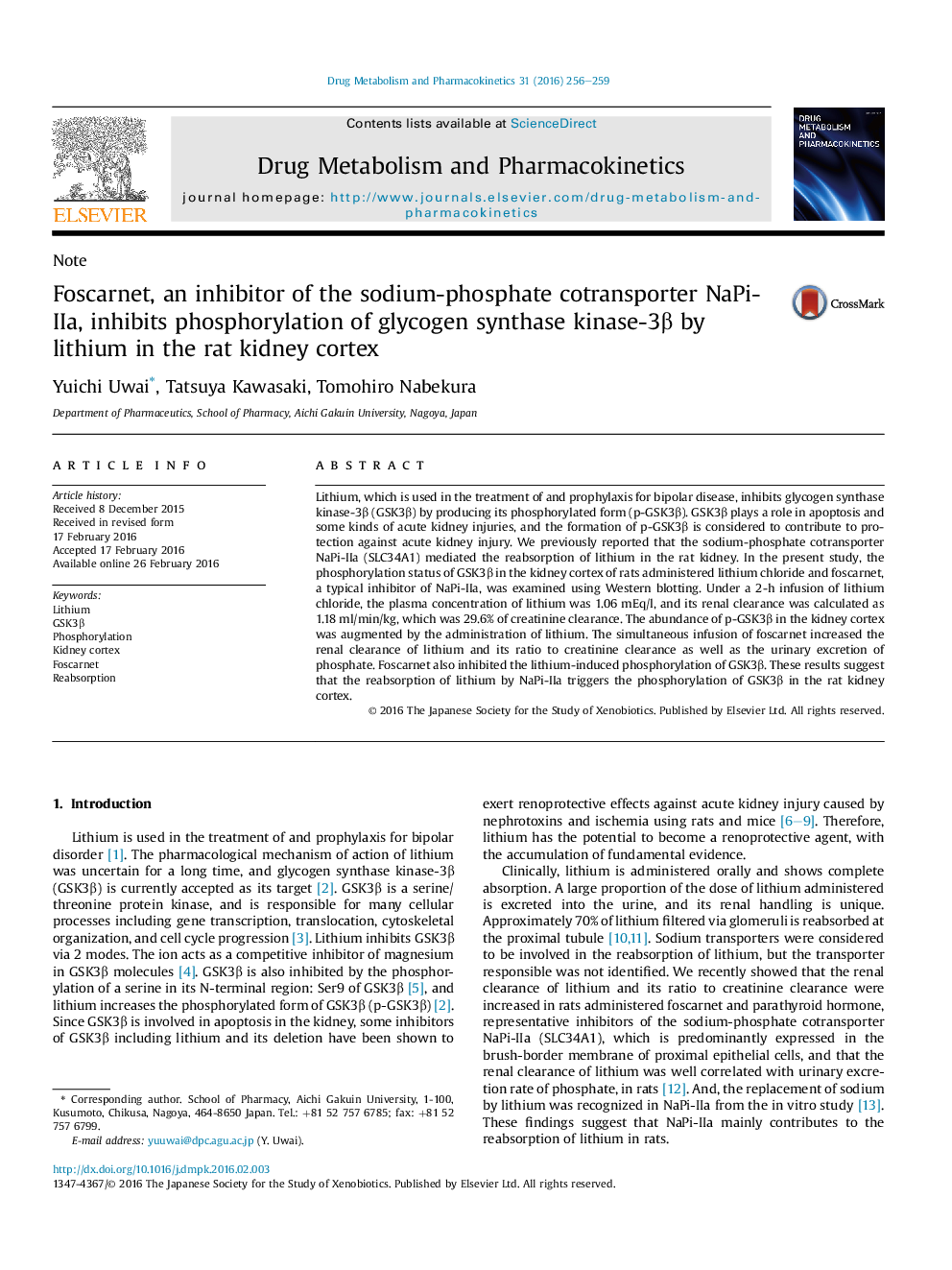| Article ID | Journal | Published Year | Pages | File Type |
|---|---|---|---|---|
| 5807427 | Drug Metabolism and Pharmacokinetics | 2016 | 4 Pages |
Lithium, which is used in the treatment of and prophylaxis for bipolar disease, inhibits glycogen synthase kinase-3β (GSK3β) by producing its phosphorylated form (p-GSK3β). GSK3β plays a role in apoptosis and some kinds of acute kidney injuries, and the formation of p-GSK3β is considered to contribute to protection against acute kidney injury. We previously reported that the sodium-phosphate cotransporter NaPi-IIa (SLC34A1) mediated the reabsorption of lithium in the rat kidney. In the present study, the phosphorylation status of GSK3β in the kidney cortex of rats administered lithium chloride and foscarnet, a typical inhibitor of NaPi-IIa, was examined using Western blotting. Under a 2-h infusion of lithium chloride, the plasma concentration of lithium was 1.06 mEq/l, and its renal clearance was calculated as 1.18 ml/min/kg, which was 29.6% of creatinine clearance. The abundance of p-GSK3β in the kidney cortex was augmented by the administration of lithium. The simultaneous infusion of foscarnet increased the renal clearance of lithium and its ratio to creatinine clearance as well as the urinary excretion of phosphate. Foscarnet also inhibited the lithium-induced phosphorylation of GSK3β. These results suggest that the reabsorption of lithium by NaPi-IIa triggers the phosphorylation of GSK3β in the rat kidney cortex.
Graphical abstractDownload high-res image (204KB)Download full-size image
